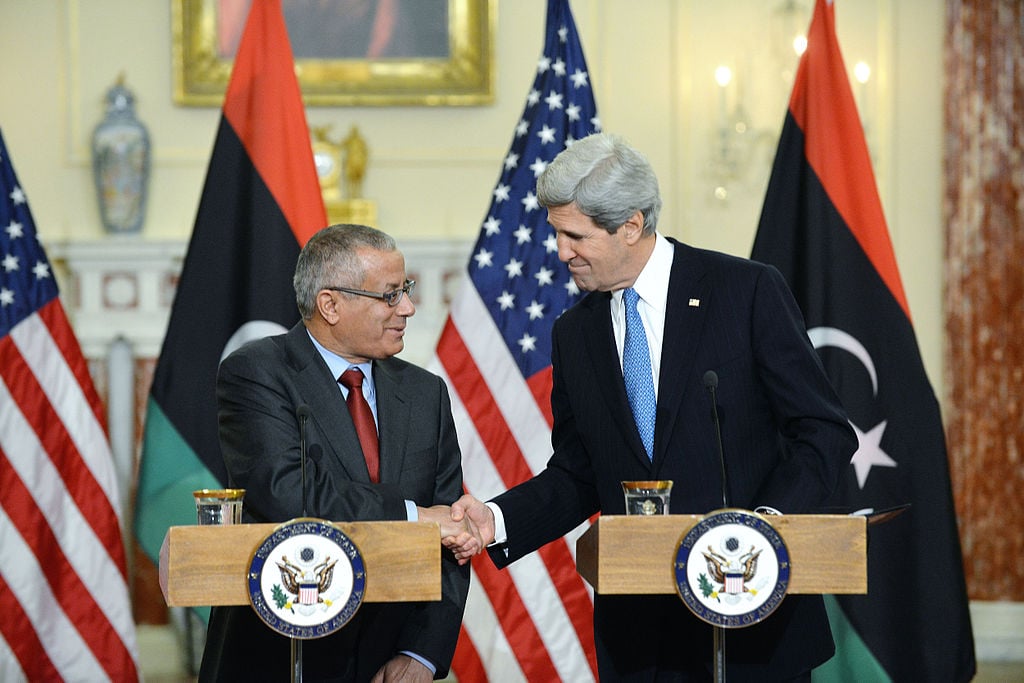
US Secretary of State shakes hands with Libyan Prime Minister Ali Zeidan on March 13, 2013. (US Department of State)
Libyan foreign minister Mohamed Abdelaziz announced earlier this week that with Western assistance, Libya had completed the destruction of its chemical weapons. The process to dismantle the Libyan chemical stockpile began in 2004 under the Ghaddafi regime as part of his campaign to normalize relations with the West. At that time, Libya had declared approximately 25 tons of chemical weapons, but after the new government took control after Ghaddafi’s overthrow, an additional two tons of chemical weapons were discovered.
The destruction of the chemical weapons appears to have come in just the nick of time. The power of Islamist militants, particularly in Libya’s south, is growing. After the assassination of a Libyan cabinet minister, the first such assassination of a member of the transitional government, and the seizure of an important air base – all within one month – the government declared a state of emergency in the turbulent south. Much of the violence, however, comes from competition between rival tribes and ethnic groups. The BBC reports that up to 1,700 different armed militias have been operating in Libya since Gaddafi’s death.
At the same time, separatist militias united under the warlord Ibrahim Jadran, have seized control of much of eastern Libya and declared an independent government of Cyrenaica. Cyrenaica is believed to control much of Libya’s oil and has repeatedly reached out to the international community in attempt to find a market for its resources. So far, no international traders are known to have attempted to do business with the rebels.
The destruction of chemical weapons is a welcome development in an increasingly unstable Libya. Yet despite assurances to the contrary from Western and Libyan officials, there still remains the possibility of other undiscovered caches of chemical weapons.